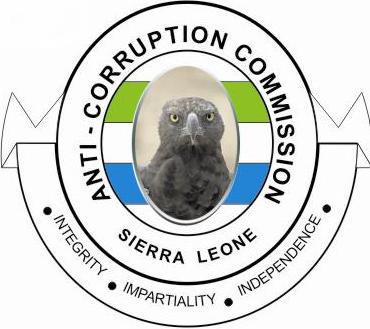WHAT IT TRULY MEANS TO POLITICIZE THE FIGHT AGAINST CORRUPTION
By Ahmed Baimaro, Maryland, USA
I have been following with keen interest the debates and discourse on matters pertaining to the fight against corruption in Sierra Leone in the past few weeks. As someone residing far away from my motherland, most times my sources of news are the social media and local news outlets (like SLBC, AYV and Radio Democracy) which have an online presence. We thank God that our present day Salone provides the kind of environment that allows citizens to express themselves freely and openly without any attempts to muzzle their freedom of expression or fear of incarceration for critical views expressed. This was absent during the 80s and early 90s when I was battling for survival in a place I called my country of birth.
As someone closely observing politics and developmental issues back home, I would say passionately that the fight against corruption is one area that has received thunderous acclaims in the past few years since the young lawyer, Francis Ben Kaifala, took over the mantle of leadership of the two-decade old anti-graft agency.
The young man has proven beyond expectations, sending a clear signal that the challenges confronting the fight against corruption are not insurmountable. Most of the issues that used to bedevil the anti-corruption campaign – like the lack of political will, the lack of vibrant leadership in the fight, the nervousness and timidity to go after individuals considered to be very powerful and influential- are now things of the past.
The evidence, backed by statistics, is there to corroborate this. From the ‘Control of corruption’ indicator in the Millennium Challenge Corporation (MCC) Scorecard in which Sierra Leone came from a score of 49 percent in 2017 to an unprecedented score of 81 percent in under three years. The Transparency International Corruption Perception Index also shows a remarkable leap from 129 three years ago to the current ranking of 117. There are also the National Corruption Perception Survey and the Afro Barometer, both of which show an astronomical downward trend in incidences of corruption based on citizens’ experiences. All these gains did not happen by accident; they are due to the massive efforts and strategies put together by the current leadership at the ACC.
However, like many other areas of Sierra Leone’s development strides, I believe politics is beginning to affect all the numerous efforts that have been committed to the anti-corruption campaign. The current challenges we have as a country are not because nothing is being done to combat corruption with the seriousness that it deserves, but due to the fact that politicians, mostly those in opposition, continue to keep the anti-corruption agenda in the public discourse. They do this because they harbor a motive, which is aided by the kind of toxic society Sierra Leone has become. They know that the country is deeply polarized, to the extent that even the provision of life-saving drugs or vaccines can be given a political connotation. That is why some of us are sometimes least surprised by the outbursts coming from certain sections of the public.
Some will castigate the ACC even if the country were to score 100 percent in all the international transparency indices in the world, merely to score political goals. Others are a clear case of corruption fighting back, because they, or their cronies, had once been made to pay a dear price for acts of corruption. A few others will throw spanners because they are provided with the platform to do so, even when they have nothing substantial to add to the debate.
What beats my imagination is when some have even gone to the extent of vilifying credible institutions like the MCC just because of the impressive ratings they continue to give the country’s anti-corruption efforts. Chernor Bah of the Africanist Press has even gone so low to insinuate that some of these institutions were bribed to give Sierra Leone favourable ratings. Hearing those embarrassing words made cringe with anger and consternation. Must we go so low? Must we show this kind of hatred to the country we all claim to pledge our love and loyalty? Some of us have turned the US to our permanent home, but anything that paints or tends to put our country of birth in a bad light, we will always stand against.
But as former US President Barack Obama, once said: ”The cynics may be the loudest voices- but I promise you, they will accomplish the least.” I strongly believe that those who use the fight against corruption for their own ulterior motives will surely not succeed in putting a dent in the country’s already exciting anti-corruption efforts, which have made this country a model for many other African and developing countries.
My parting words for Ben Kaifala and his team at the ACC, therefore, is another quote by President Obama that, “…progress will come in fits and starts. It’s not always a straight line. It’s not always a smooth path “Where we are met with cynicism and doubts and those who tell us that we can’t, we will respond with that timeless creed that sums up the spirit of a people: Yes, we can.” The ACC leadership must beware of these emerging challenges in the anti-corruption campaign. They should be focused on the things they have been doing to get rid of the scourge of corruption in our motherland. They should know that most of those saying things loudly and misguidedly today do not represent the views held by most Sierra Leoneans. At least the National Corruption Perception Survey tells us this- that 90 percent of the people of Sierra Leone trust the efforts of the current leadership in curbing acts of corruption in the country. Take this as an inspiration and motivation to continue your good job of clamping down the corrupt.




